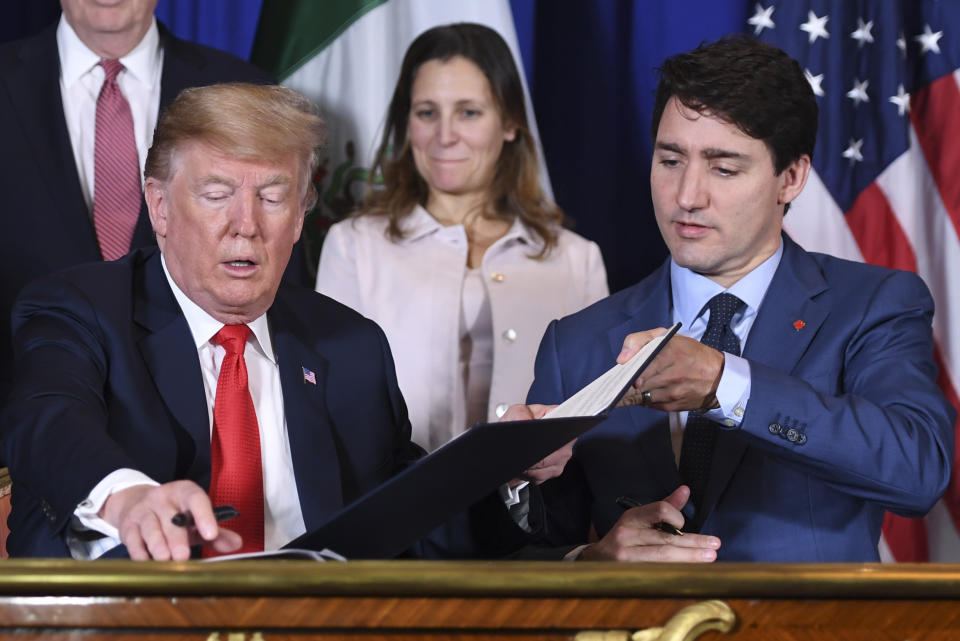How Trump could push Canada into a recession within 12 months

They say when the U.S. sneezes, Canada catches a cold. Well, fortress America could be very sick if what many consider a recession indicator rings true.
The yield curve has inverted. In other words, the yield on the 10-year U.S. Treasury bond dipped below the rate on the 2-year U.S. Treasury bond. Fears of a global slowdown as well as President Donald Trump’s trade war with China are among the key contributors.
The event has been a pretty good economic fortune teller, but it doesn’t guarantee a recession.
Brett House, deputy chief economist, Bank of Nova Scotia says the slope of an inverted yield curve is not destiny. He notes most recession probability models rely on the slope of the yield curve for their forecast. If it inverts, even briefly, it flashes warning signs of a recession in the next 12 months. But he says inversion tends to over-predict recessions by a ratio of about two to one.
“Since the middle of the 20th century, the yield curve has been inverted around three times the number of months that we have experienced a recession,” House told Yahoo Finance Canada.
“The curve has to more than invert—it has to stay inverted for a substantial period of time, at least a quarter, in order to be anything close to a reliable recession predictor or causal factor.”
House doesn’t see a recession looming. Bank of Nova Scotia puts the odds at 18 per cent in late 2020.
Blame Trump
“The White House’s erratic and unpredictable protectionism is the real risk to the global economy,” said House.
“As Trump’s trade threats move from pointillist event risks to chronic condition, they progressively chill investment decisions and business activity.”
Karl Schamotta, chief market strategist at Cambridge Global Payments, agrees when it comes to Trump.
“The probability of recession is rising - political turmoil surrounding Donald Trump’s trade wars has spread into the financial markets, raising uncertainty levels and threatening to weaken economies (like Canada’s) that are inextricably linked to the United States,” Schamotta told Yahoo Finance Canada.
Schamotta thinks Trump’s bark is bigger than his bite and says a bigger shock than already announced tariffs are needed to push Canada into a recession. He puts the odds of a recession this year below 30 per cent, rising closer to 50 per cent by early 2021. He says Canada also has its own issues that can’t be ignored.
“Canadian households continue to pack on debt with little heed for the future. Real estate and financing activities still command an unsustainably-large proportion of economic activity,” said Schamotta.
“It would be smart to use this opportunity to put their houses in order - to cut spending, reduce debt, and prepare to ride out the next wave of volatility.”
Recessions have been few and far between
Canada has only gone through three recessions in the last 35 years. Stephen Brown, senior Canada economist at Capital Economics, cautions against putting too much faith into models-based estimates to predicts them.
“That said, given stretched house prices, heightened levels of construction and the fragile financial position of many households, we’ve been warning about the downside risks to the economic outlook for some time,” Brown told Yahoo Finance Canada.
Brown says subdued economic growth means it wouldn’t take much to push Canada into a recession. He puts the probability of one in the next 12 months at about 35 per cent.
Jessy Bains is a senior reporter at Yahoo Finance Canada. Follow him on Twitter @jessysbains
Download the Yahoo Finance app, available for Apple and Android.

 Yahoo Finance
Yahoo Finance 
